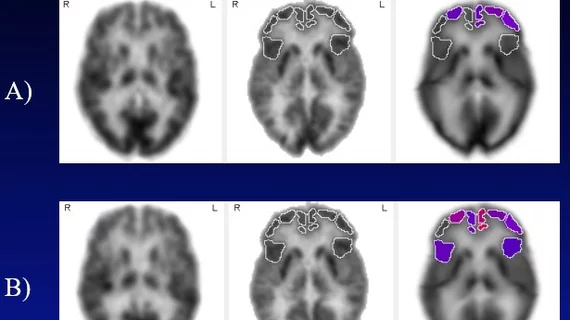Hearing aids help stall brain aging, new imaging study shows
Hearing aids are good for more than just hearing—according to new research presented at the Society of Nuclear Medicine and Molecular Imaging’s annual meeting, they also help to slow brain aging.
And they’re especially beneficial for individuals struggling with mild cognitive impairment, experts suggest.
“While the impact of hearing loss and use of hearing aids upon the risk of developing dementia has been studied previously, the cross-comparison between subjects with hearing loss and subjects with hearing aids and changes in brain metabolism over time have not yet been elucidated,” Natalie Quilala, an undergraduate student at the University of California, Los Angeles, and co-authors noted in their abstract.
For the study, researchers combed through the Alzheimer’s Disease Neuroimaging Initiative database to find individuals with mild cognitive impairment, a history of hearing loss, and baseline FDG PET brain imaging who had follow-up scans conducted yearly thereafter. Individuals were divided into groups based on whether their hearing loss had been treated using hearing aids or not treated at all, and were compared to a matched group of controls with no record of hearing impairment.
On imaging, the hearing loss group exhibited significantly more metabolic decline in six frontal cortical regions and two superior temporal regions compared to the control group, which showed deterioration of just in two superior temporal regions.
The group who used hearing aids, however, did not show notable decline in any of the frontal regions analyzed. When the frontal cortical regions of the hearing aid group did start to deteriorate, they did so at a much slower rate than what was observed in the untreated hearing loss group.
Given that frontal regions of the brain deteriorate with normal aging, these findings indicate that hearing aids could serve as a protective measure for people more susceptible to the neurological aging process.
“These results suggest that while hearing loss may accelerate the aging process occurring in cerebral metabolism, that this acceleration may be ameliorated by the use of hearing aids,” the group concluded.
The study abstract can be found here.

